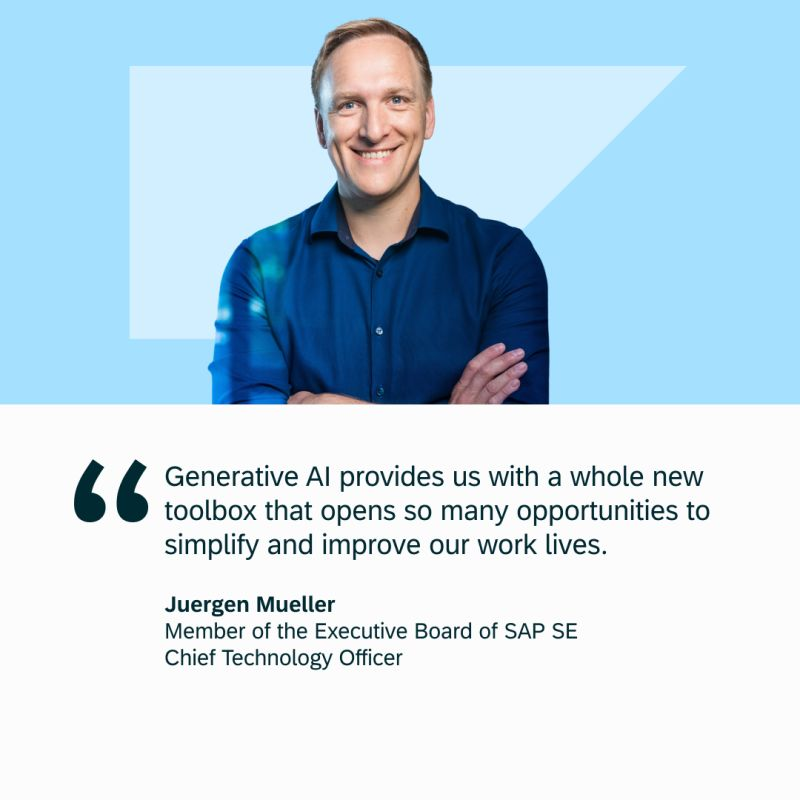Table of Contents
Preface
Artificial Intelligence (AI) is going to have a significant impact on marketing, with implications for businesses. Robots can now do marketing work, which raises the question of what lessons we can learn from them, and whether we should let them run our marketing campaigns. It’s fascinating to see how far we’ve come, and the possibilities that lie ahead
Machines will likely be smarter than us before the end of the century—not just at chess or trivia questions but at just about everything, from mathematics and engineering to science and medicine
Gary Marcus
AI in a Nutshell
Artificial Intelligence (AI) is a rapidly evolving field of computer science that focuses on developing computer systems that can perform tasks that require human-like intelligence such as learning, reasoning, and decision-making.
AI algorithms are designed to process vast amounts of data, identify patterns, and use those patterns to make predictions and decisions.
With the ability to analyze complex data sets, AI can revolutionize industries such as healthcare, finance, transportation, customer service, and entertainment by enabling faster and more efficient decision-making processes, predictive analysis, and the automation of many tasks that humans currently perform.
The Three Essential Components of AI
Data
In AI, data is the essential element that fuels the system. It is the foundation of all AI algorithms and is required for them to learn, analyze patterns, and make informed decisions.
- Quality, quantity, and diversity of data are essential for effective and accurate AI models.
- AI systems require adequate and relevant data to perform at their optimal level.
- A constant supply of high-quality data is imperative for AI models to continuously learn and improve, which leads to better outcomes and insights.
Diversity
Diversity in artificial intelligence (AI) pertains to the incorporation of varied viewpoints, backgrounds, and life experiences in the datasets, teams, and applications involved in AI technology
- Embracing diversity is key to minimizing biases in AI data
- Promoting diversity in AI is crucial to ensuring unbiased and equitable systems
- Diversity helps improve the fairness and inclusivity of AI systems
Deployment
The process of deployment involves the practical implementation and integration of AI solutions into real-world applications and environments.
- Effective deployment of AI considers scalability, reliability, usability, and ethical implications
- Successful deployment is crucial to ensure reliable, scalable, and measurable benefits to users and stakeholders
Why should you read this book?
This guide will show you how Artificial Intelligence (AI) can help you personalize your marketing efforts, gain deeper insights into your customers’ behavior and preferences, automate repetitive tasks, and create more engaging experiences for your audience.
Whether you’re a seasoned marketing professional or a beginner, this guide is designed to give you everything you need to use AI to achieve remarkable results. We’ll use real-world examples, practical strategies, and expert analysis to help you navigate the exciting world of AI in marketing.
We’ll also explore each of these areas in more detail, with case studies, real-world applications, and insights on how to overcome the challenges and seize the opportunities presented by AI in marketing
Chapter 1: Understanding AI in Marketing
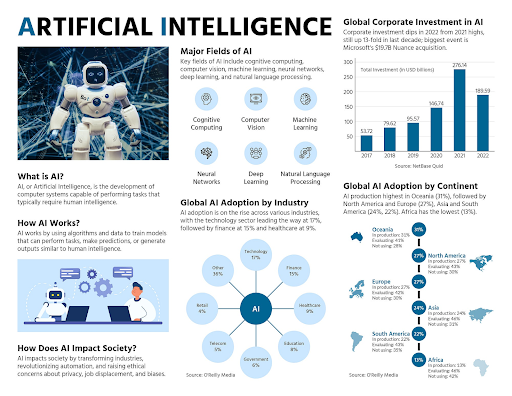
In this first chapter, we will learn about the basics of artificial intelligence (AI) and how it is changing the way marketers work. With technology advancing quickly, marketers need to understand AI so they can stay ahead in the digital world.
The Dawn of AI in Marketing
Our intelligence is what makes us human, and AI is an extension of that quality.
Yann LeCun
Artificial Intelligence (AI), once a frontier of scientific research, has seamlessly integrated into our daily lives and business practices. In marketing, AI’s impact is profound, offering unprecedented capabilities in analyzing data, predicting trends, and automating tasks.
Exploring the Basics of AI and Its Components
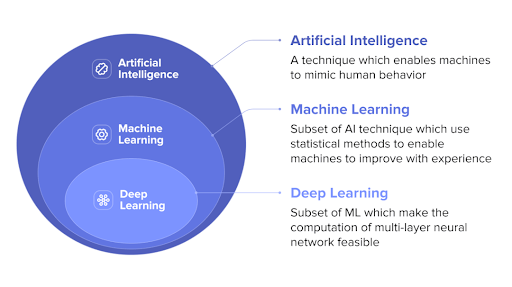
Exploring the fundamentals of Artificial Intelligence (AI) and its key components reveals the depth and breadth of this transformative technology.
AI mimics human intelligence’s capabilities, such as learning, decision-making, problem-solving, and understanding language, by using complex algorithms and computational power.
Here’s a deeper dive into the critical components that drive AI, particularly in the realm of marketing:
Machine Learning (ML)
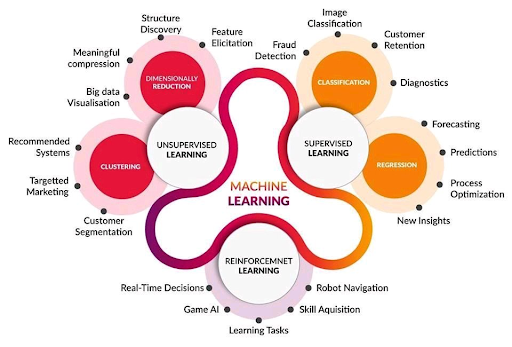
Overview: Machine Learning is a subset of AI that enables systems to learn from data, identify patterns, and make decisions with minimal human intervention. It is the backbone of many AI systems, providing the capability for algorithms to improve automatically through experience.
Key Features
- Supervised Learning: Machine Learning models are trained on labeled datasets, learning to predict outcomes based on input data.
- Unsupervised Learning: Models identify patterns and relationships in data without any labels, often used for clustering and association tasks.
- Reinforcement Learning: Algorithms learn to make a sequence of decisions by trial and error, maximizing a cumulative reward.
Applications in Marketing
- Customer Segmentation: Analyzing customer data to identify distinct groups for targeted marketing campaigns.
- Predictive Analytics: Forecasting future trends, such as demand for products, to optimize inventory and marketing strategies.
Natural Language Processing (NLP)
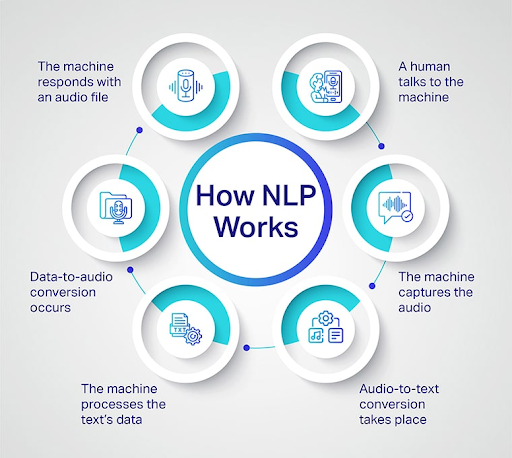
Overview: Natural Language Processing is a branch of AI that gives machines the ability to read, understand, and generate human languages. It bridges the gap between human communication and computer understanding, making it possible for machines to process and analyze large amounts of natural language data.
Key Features
- Sentiment Analysis: Determining the sentiment behind text data, is useful for monitoring brand reputation and understanding customer feedback.
- Chatbots and Virtual Assistants: Automating customer service and support tasks by understanding and responding to user queries in natural language.
Applications in Marketing
- Content Creation: Generating high-quality, relevant content for blogs, articles, and social media posts.
- Customer Insights: Gleaning insights from customer reviews, feedback, and social media conversations to guide marketing strategies.
Computer Vision
Overview: Computer Vision enables computers and systems to derive meaningful information from digital images, videos, and other visual inputs, simulating human vision’s ability to interpret and understand visual data.
Key Features
- Image Recognition: Identifying objects, places, people, and actions in images.
- Facial Recognition: Identifying or verifying a person’s identity using their face, often used in security systems.
Applications in Marketing
- Visual Search: Allowing customers to search for products using images instead of text, enhances the shopping experience.
- Brand Logo Detection: Monitoring where and how often a brand’s logo appears across various media channels for marketing analysis.
These components of AI are not only foundational to understanding how AI works but also illustrate the vast potential applications in marketing and beyond.
By leveraging ML, NLP, and Computer Vision, businesses can achieve more personalized, efficient, and effective marketing strategies that resonate with their target audiences. The continuous advancements in these areas are rapidly transforming industries, offering new opportunities for innovation and growth.
The Evolution of AI in Marketing
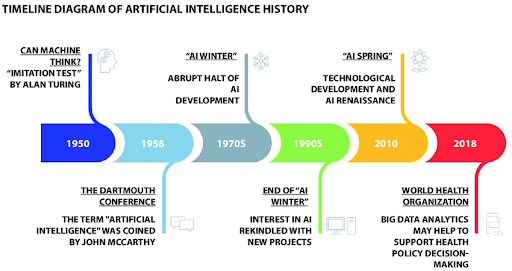
AI’s integration into marketing didn’t happen overnight. It evolved through stages, from simple data analysis tools to sophisticated predictive models and automated systems.
This evolution has enabled marketers to transition from guesswork and intuition to data-driven strategies that optimize customer engagement and business growth.
AI’s integration into marketing didn’t happen overnight. It evolved through stages, from simple data analysis tools to sophisticated predictive models and automated systems. This evolution has enabled marketers to transition from guesswork and intuition to data-driven strategies that optimize customer engagement and business growth.

Early Adoption of Data Analysis Tools:
- In the early stages, marketers primarily used basic data analysis tools to extract insights from customer data.
- These tools provided rudimentary analytics capabilities, such as tracking website traffic, email open rates, and conversion rates.
- While useful for gaining basic insights, these tools had limitations in terms of scalability, accuracy, and predictive capabilities. Marketers often rely on manual processes and subjective interpretations to make decisions.
The emergence of Predictive Analytics:
- As AI technologies advanced, predictive analytics emerged as a powerful tool for marketers.
- Predictive models, powered by machine learning algorithms, enabled marketers to forecast future trends, customer behavior, and market demand with greater accuracy.
- By analyzing historical data and identifying patterns, predictive analytics empowered marketers to make data-driven decisions, such as optimizing ad campaigns, forecasting sales, and segmenting target audiences more effectively.
Rise of Automated Marketing Systems:
- With further advancements in AI and automation, marketers began to adopt sophisticated automated marketing systems.
- These systems leverage AI algorithms to streamline various marketing processes, including lead generation, customer segmentation, content personalization, and campaign optimization.
- Automated marketing systems not only save time and resources but also enable marketers to deliver highly personalized experiences to individual customers at scale.
- By leveraging AI-driven insights, marketers can create targeted campaigns that resonate with their audience, resulting in improved engagement and conversion rates.
Integration of AI Across Marketing Channels:
- Today, AI has become an integral part of marketing across various channels and platforms.
- From social media advertising and email marketing to website optimization and customer service, AI-powered tools and technologies are driving efficiency, personalization, and effectiveness in marketing campaigns.
- Marketers are increasingly relying on AI-driven solutions to analyze data in real time, predict customer behavior, automate repetitive tasks, and deliver hyper-targeted experiences across the customer journey.
Key AI Technologies Driving Change
- Predictive Analytics: Using AI to predict future consumer behavior based on historical data.
- Chatbots and Virtual Assistants: AI-powered tools that offer personalized customer service experiences.
- AI-Driven Content Generation: Tools that produce written content, images, and videos tailored to specific audiences.
Chapter 2: AI-Driven Market Research and Consumer Insights
What all of us have to do is to make sure we are using AI in a way that is for the benefit of humanity, not to the detriment of humanity.
Tim Cook's
The advent of Artificial Intelligence (AI) has revolutionized the landscape of market research and consumer insights, offering unprecedented capabilities for analyzing complex consumer behaviors and predicting future market trends.
This chapter delves into how AI is transforming market research methodologies, its application in consumer behavior analysis and prediction, and presents case studies of AI-powered market research tools.
How AI Transforms Market Research Methodologies
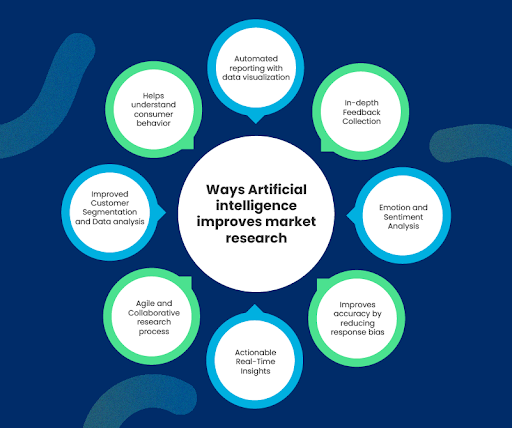
AI has fundamentally changed the approach to market research, making it more efficient, accurate, and insightful. Traditional methods often involve manual data collection and analysis, which can be time-consuming and prone to human error.
AI, however, automates these processes, enabling researchers to handle vast amounts of data with precision and speed.
- Automated Data Collection: AI algorithms can scrape data from various sources, including social media, online forums, and websites, providing a richer, more diverse data set for analysis.
- Advanced Data Analysis: AI and machine learning models can identify patterns, trends, and correlations within the data that might not be evident to human analysts. This capability allows for deeper insights into market dynamics and consumer preferences.
- Predictive Analytics: AI excels in forecasting future trends based on historical data, helping businesses anticipate market shifts and consumer needs more accurately.
AI in Consumer Behavior Analysis and Prediction
Understanding and predicting consumer behavior is at the heart of market research. AI enhances this aspect by offering tools that can analyze consumer sentiment, predict purchasing behaviors, and personalize marketing efforts.
- Sentiment Analysis: By evaluating the tone and emotion in consumer feedback and online discussions, AI can gauge public sentiment towards a product, brand, or service. This insight is invaluable for shaping marketing strategies and product development.
- Purchase Prediction: AI models can analyze past purchasing behaviors, browsing habits, and other relevant data to predict future purchases. This information helps companies tailor their marketing efforts and stock inventory more effectively.
- Personalization: AI enables hyper-personalization by using consumer data to deliver tailored messages and product recommendations, significantly improving engagement and conversion rates.
Case studies: AI-powered market research tools
The integration of Artificial Intelligence (AI) into market research tools has significantly changed the way businesses gather and analyze consumer data, offering deeper insights and a competitive edge in understanding market dynamics and consumer behavior.
Below are detailed case studies of AI-powered market research tools that showcase the transformative impact of AI in this field:
1. Crimson Hexagon (Now Brandwatch)
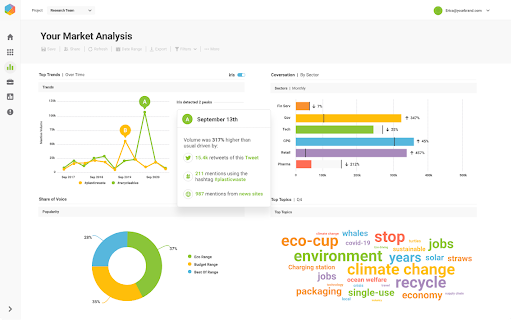
Overview:
Crimson Hexagon, which has merged into Brandwatch, is renowned for its advanced social media analytics capabilities. The platform leverages AI to sift through vast amounts of online conversation data, extracting meaningful insights about trends, sentiment, and consumer perceptions.
Impact:
- By analyzing data from social media and other digital platforms, Brandwatch provides businesses with real-time insights into public perception, allowing them to monitor brand health, understand consumer sentiments, and identify emerging trends.
- This information is crucial for brands to adapt their strategies, manage crises, or capitalize on opportunities promptly.
2. Remesh
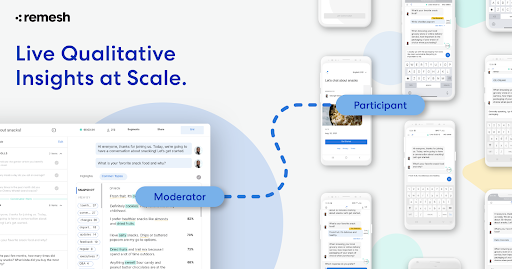
Overview:
Remesh is an innovative platform that employs AI to facilitate real-time virtual focus groups. It enables companies to engage with up to thousands of participants simultaneously, using AI to analyze and synthesize the responses to provide qualitative insights at an unprecedented scale.
Impact:
- This platform democratizes access to qualitative research, making it possible to gather deep insights into consumer opinions and behaviors without the logistical limitations and high costs of traditional focus groups.
- Remesh has been instrumental in helping businesses make informed decisions based on a comprehensive understanding of their audience.
3. Canvs
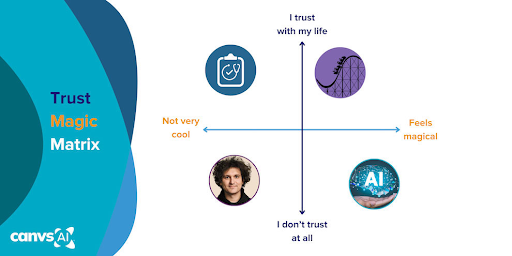
Overview:
Canvs specializes in emotion and sentiment analysis, using AI to parse through consumer feedback across multiple platforms. The tool interprets the underlying emotions and themes in the data, offering a granular analysis of consumer sentiment.
Impact:
- Canvs provides brands with the nuanced understanding of consumer emotions necessary to refine messaging, product development, and marketing strategies.
- This depth of insight into consumer sentiment is invaluable for businesses looking to connect with their audience on a more emotional and personal level.
4. Conversica
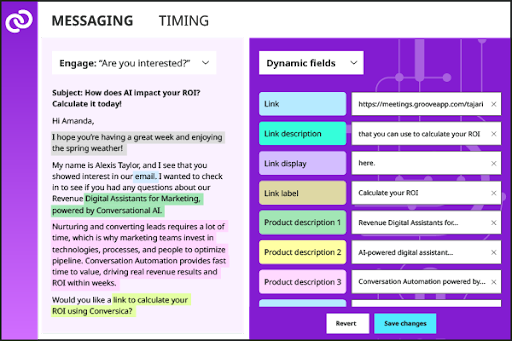
Overview:
Conversica harnesses AI to automate customer engagement through sophisticated conversational agents. These AI-driven assistants engage with potential leads, nurturing them through personalized interactions and gathering insights into consumer needs and preferences.
Impact:
- Conversica extends beyond mere lead generation to enhance customer engagement, providing a continuous stream of insights into consumer behavior and preferences.
- This allows sales and marketing teams to focus their efforts more effectively, improving conversion rates and customer satisfaction.
These case studies underscore the power of AI in transforming market research and consumer insights.
AI-powered tools like Brandwatch, Remesh, Canvs, and Conversica enable businesses to gather, analyze, and act on consumer data more effectively than ever before.
By leveraging these technologies, companies can achieve a deeper understanding of their market and customers, anticipate future trends, and tailor their strategies to meet consumer needs, driving growth and fostering innovation in a competitive landscape.
Chapter 3: Personalization and Customer Experience
AI technologies have transformed personalization and customer experience by analyzing vast amounts of data to predict future needs and desires. This helps companies deliver personalized recommendations, content, and promotions in real time, elevating the customer experience.
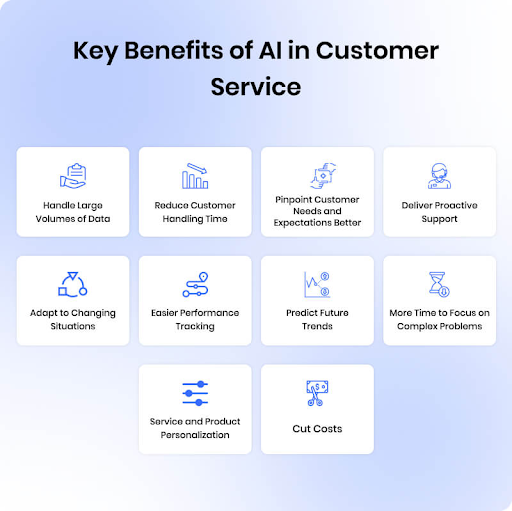
AI-powered chatbots and virtual assistants offer instantaneous support, enhancing customer engagement. Businesses that leverage AI for personalization improve customer satisfaction and loyalty while gaining valuable insights to drive strategic decision-making.
The Role of AI in Crafting Personalized Marketing Messages
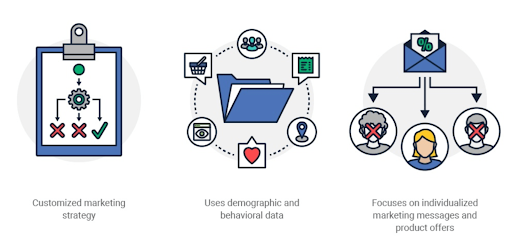
The playing field is poised to become a lot more competitive, and businesses that don’t deploy AI and data to help them innovate in everything they do will be at a disadvantage.
Paul Daugherty
The latest advances in AI have revolutionized marketing, enabling personalized customer experiences, optimized pricing, and smart predictive models.
Global Chief Marketing Officers (CMOs) are increasingly turning their attention to generative AI as they explore use cases that create a competitive advantage. But what exactly is AI’s role in crafting personalized marketing messages?
- Automation and Streamlining Workflow:
- AI takes care of time-consuming, repetitive tasks, streamlining workflow. It handles routine processes, freeing up marketers’ time for strategic decisions.
- Imagine automating product recommendations, individual pricing decisions, and incentive optimization for each customer across the entire market. Marketers can focus on driving strategy while AI handles the execution.
- Scaling Marketers’ Intuition:
- AI scales marketers’ intuition by analyzing vast amounts of data. It taps into customer preferences, behaviors, and interactions.
- With AI, marketers can conduct personalized experiments for each customer, fine-tuning their approach based on real-time insights.
- Data Quality Challenges:
- Many companies struggle with data quality when implementing AI. Improving data quality involves robust data collection, cleansing, and validation.
- Conversations around data quality focus on ensuring accurate, relevant, and reliable data for effective personalization
Enhancing Customer Experience through AI-Driven Platforms
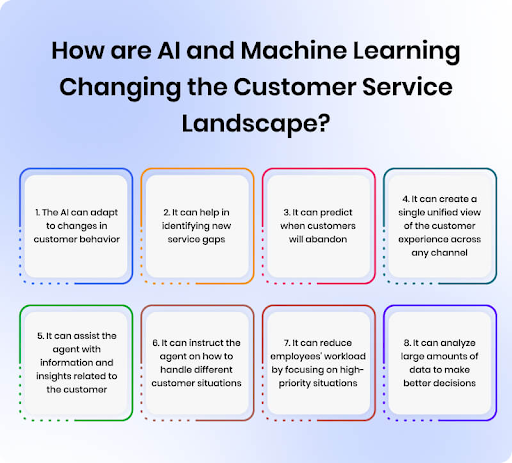
Effective personalization faces two recurring bottlenecks:
- Execution Velocity:
- Personalization needs to move at the speed of consumer preferences. Traditional marketing campaigns often need to catch up.
- Consumers’ tastes, behaviors, and interactions change rapidly. Marketers must keep pace, which can be challenging.
- Siloed Operating Models:
- Effective personalization involves multiple parts of an organization. Cross-disciplinary collaboration is essential.
- Companies need a unified dialogue with consumers, to avoid the perception of dealing with disjointed teams.
- For instance, a large financial institution may have different units (retail banking, card services, wealth management) reaching out to consumers individually.
- Internally, this must be managed cohesively to present a coordinated external image.
AI’s Impact on Customer Experience
- Automated Personalization:
- AI-driven platforms like BCG’s Fabriq automate personalization tasks. They handle repetitive processes, allowing marketers to focus on strategy.
- These platforms optimize pricing, promotions, and predictive models, creating seamless customer experiences.
- Unified Dialogue with Consumers:
- AI ensures a cohesive approach. Instead of disjointed interactions, consumers experience a unified dialogue.
- Imagine a personalized journey where different units within a company collaborate seamlessly to provide consistent, tailored experiences.
Real-World Examples of AI in Personalization
Spotify’s Personalized Playlists:

- Spotify uses AI algorithms to analyze users’ listening habits. It creates personalized playlists based on individual preferences.
- By understanding each user’s music taste, Spotify enhances the listening experience.
Userpilot’s User Onboarding:
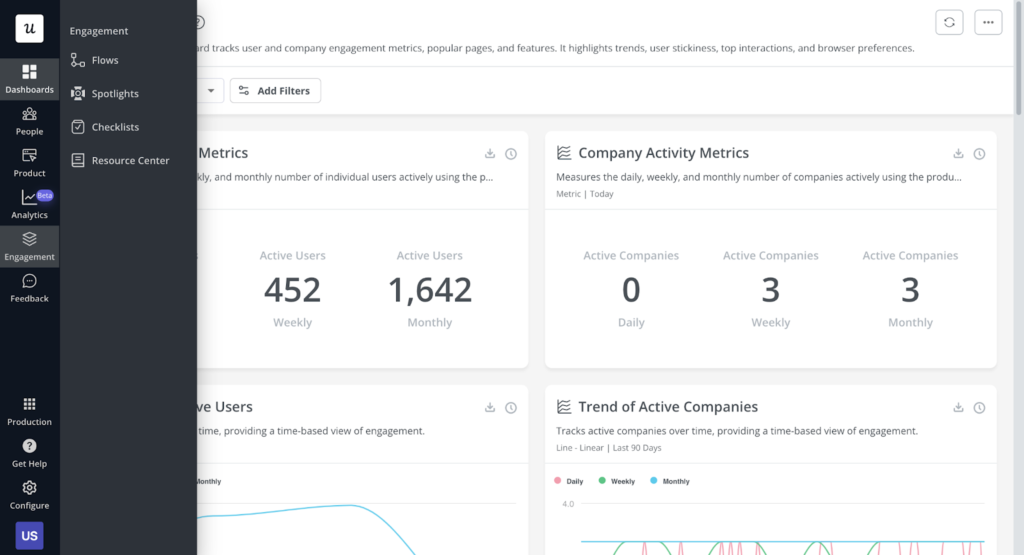
- Userpilot, a user onboarding and product adoption platform, leverages AI for personalized and engaging user experiences.
- Through targeted guidance and recommendations, Userpilot ensures users get the most out of software products.
In summary, AI’s impact on personalization is profound. It empowers marketers, transforms customer experiences, and drives competitive advantage. As we continue to explore the evolving landscape of AI-driven marketing, experimentation, and data quality remain critical for success
Chapter 4: AI in Content Creation and Curation
In this chapter, we’ll explore how artificial intelligence transforms the way we generate and curate content, enhancing marketing strategies and overall effectiveness.
Our intelligence is what makes us human, and AI is an extension of that quality. Artificial intelligence is extending what we can do with our abilities. In this way, it’s letting us become more human
Yann LeCun
AI Tools for Content Creation
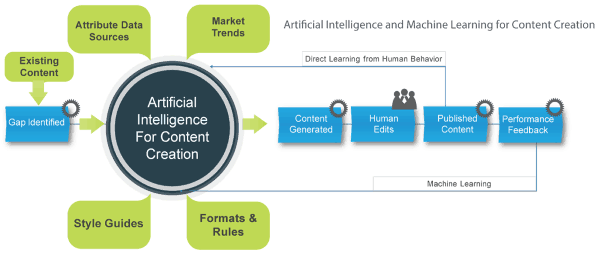
The landscape of AI tools for content creation is vast and varied, catering to a wide range of needs from writing and graphic design to video production and beyond. Here’s a more detailed look at the tools mentioned:
ClickUp
- Features: Offers a suite of AI-powered tools designed to enhance productivity across various content formats. It’s not just about generating content; ClickUp is about organizing the entire content creation workflow.
- Use Cases: Ideal for teams looking for an all-in-one solution to manage tasks, docs, goals, and chats alongside content generation.
Narrato
- Features: Uses AI to streamline the content creation process, offering tools for writing high-quality articles, blog posts, and more. It also includes content planning and workflow management features.
- Use Cases: Best suited for content teams needing efficient production of written content across different formats and channels.
Lately
- Features: Specializes in automating social media content creation, using AI to generate posts and updates that are consistent with a brand’s voice and message.
- Use Cases: Ideal for marketers and businesses looking to maintain an active and cohesive presence across social media platforms without investing excessive time.
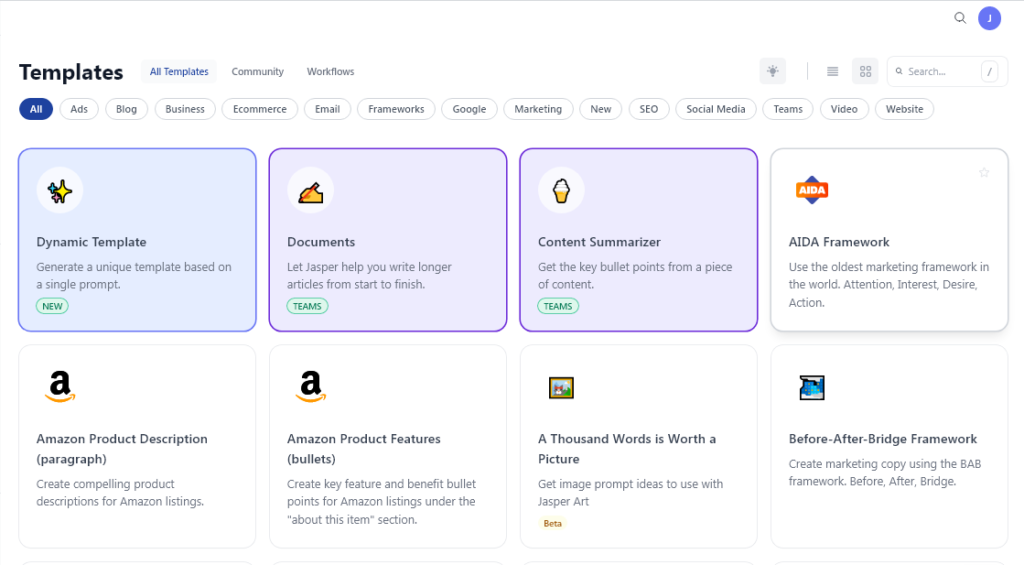
- Features: Combines AI with natural language processing to craft narratives that engage and convert. It’s designed to help with creative writing and brand storytelling.
- Use Cases: Great for creators, marketers, and businesses that want to tell compelling stories or create unique brand messages.
Copy.ai
- Features: Focuses on generating persuasive and impactful copy for ads, emails, and landing pages. It helps save time on copywriting tasks with AI-driven suggestions.
- Use Cases: Useful for marketers and businesses that need to produce a lot of copy quickly without compromising on quality.
Synthesia
- Features: Offers video production capabilities by transforming text into dynamic video content, complete with virtual avatars and voiceovers.
- Use Cases:
Perfect for educators, marketers, and content creators who want to make engaging video content without the complexity of traditional video production.
Murf
- Features: Provides tools for generating custom images from text prompts, simplifying the process of creating unique visual content.
- Use Cases: Best for social media managers and content creators looking for quick and easy ways to produce visual content tailored to their needs.

- Features: While not primarily AI-based, Canva offers a user-friendly platform for graphic design with some AI-enhanced features like design suggestions and image editing.
- Use Cases: An excellent tool for anyone needing to create visually appealing content quickly, from social media posts to presentations.
Podcastle
- Features: Uses AI to convert spoken audio into written content, facilitating the repurposing of podcasts into blog posts, articles, or social media content.
- Use Cases: Ideal for podcasters and content creators looking to maximize the reach of their audio content by branching into written formats.

- Features: Focuses on creating professional, visually appealing presentations with AI-driven design recommendations that enhance the storytelling aspect of presentations.
- Use Cases: Great for professionals and businesses needing to create impactful presentations for meetings, pitches, or educational content.
Whether you’re a solo content creator, a small business, or part of a larger marketing team, these AI tools can help streamline your content creation process, enhance productivity, and elevate the quality of your output.
Automating Content Curation with AI
Effective content curation involves sifting through vast amounts of information to deliver relevant and valuable content to your audience. AI streamlines this process by:
- Aggregating Relevant Content:
- AI algorithms analyze data from various sources, identifying content that aligns with your audience’s interests.
- Tools like Concured and Cobomba excel in content aggregation and recommendation.
- Personalizing Recommendations:
- AI tailors content recommendations based on user behavior, preferences, and context.
- Platforms like BrightEdge and MarketMuse enhance content curation by ensuring relevance.
Impact on Content Marketing Strategy and Effectiveness
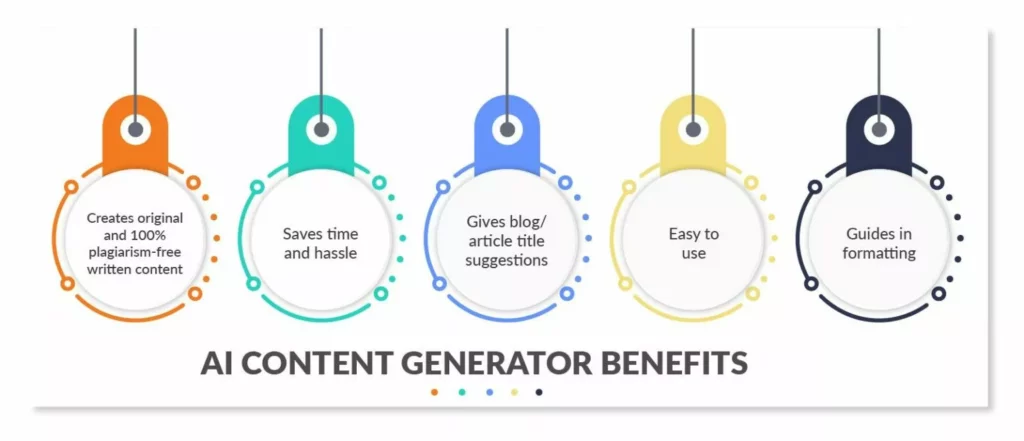
- Scalability and Consistency:
- AI-driven content creation allows marketers to scale production without compromising quality.
- Consistent messaging across channels becomes achievable, enhancing brand identity.
- Efficiency and Cost Savings:
- By automating tasks, AI reduces manual effort and resource allocation.
- Companies can allocate saved resources to strategic planning and customer engagement.
- Data-Driven Insights:
- AI analyzes performance metrics, providing actionable insights.
- Marketers can refine strategies based on real-time data.
In summary, AI revolutionizes content creation and curation, empowering marketers to meet rising demands while maintaining quality and relevance.
Chapter 5: Social Media and Influencer Marketing
In the rapidly evolving landscape of social media, artificial intelligence (AI) has emerged as a transformative force, reshaping how brands engage with audiences and measure the impact of their digital strategies.
To say that AI will start doing what it wants for its purposes is like saying a calculator will start making its calculations
Oren Etzioni
This chapter delves into the multifaceted role of AI in social media analytics, trend prediction, and the enhancement of influencer marketing, providing insights into the tools and platforms that leverage AI to optimize social media marketing efforts.
AI's Role in Social Media Analytics and Trend Prediction
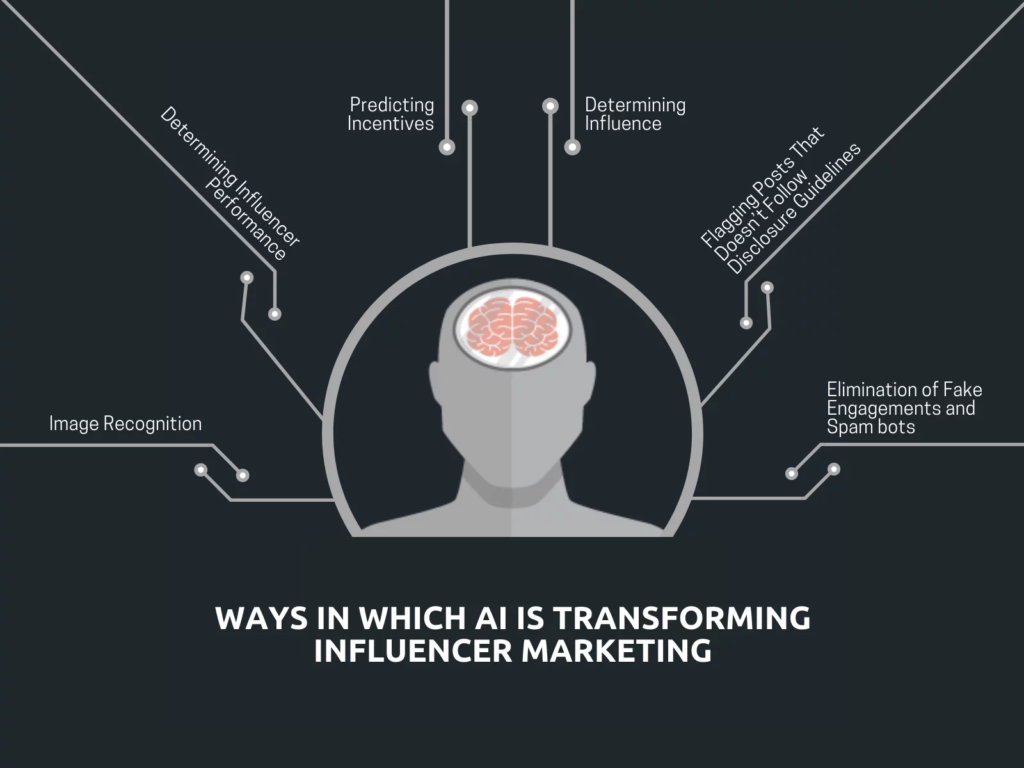
AI technologies have revolutionized social media analytics by enabling more sophisticated data analysis, leading to deeper insights into user behavior, preferences, and engagement patterns.
Machine learning algorithms can sift through vast amounts of social media data to identify trends, track brand mentions, and analyze sentiment, providing marketers with actionable intelligence to inform their strategies.
- Trend Prediction: AI-powered tools can predict emerging trends by analyzing social media conversations and content. These predictions enable marketers to tailor their content strategies to align with the interests and needs of their target audience, staying ahead of the curve.
- Sentiment Analysis: By evaluating the tone and sentiment of social media posts and comments, AI helps brands gauge public sentiment towards their products, services, or overall brand image. This insight is crucial for reputation management and strategic planning.
- Audience Analysis: AI algorithms can segment social media audiences based on demographics, interests, and behaviors, allowing for more targeted and personalized marketing efforts.
Enhancing Influencer Marketing through AI Insights
AI not only aids in identifying key influencers whose audience aligns with a brand’s target demographic but also enhances the effectiveness of influencer marketing campaigns through predictive analytics and performance measurement.
- Influencer Discovery: AI tools can analyze data points such as engagement rates, audience demographics, and content relevance to identify influencers who fit a brand’s marketing goals well.
- Campaign Optimization: Through AI, brands can optimize their influencer campaigns by predicting the content types and messaging that are most likely to resonate with the target audience, thereby improving engagement and ROI.
- Performance Analysis: AI-enabled platforms provide detailed analytics on influencer campaign performance, including reach, engagement, and conversion metrics. These insights help brands to measure the effectiveness of their campaigns and make data-driven decisions.
Tools and Platforms for AI-Powered Social Media Marketing
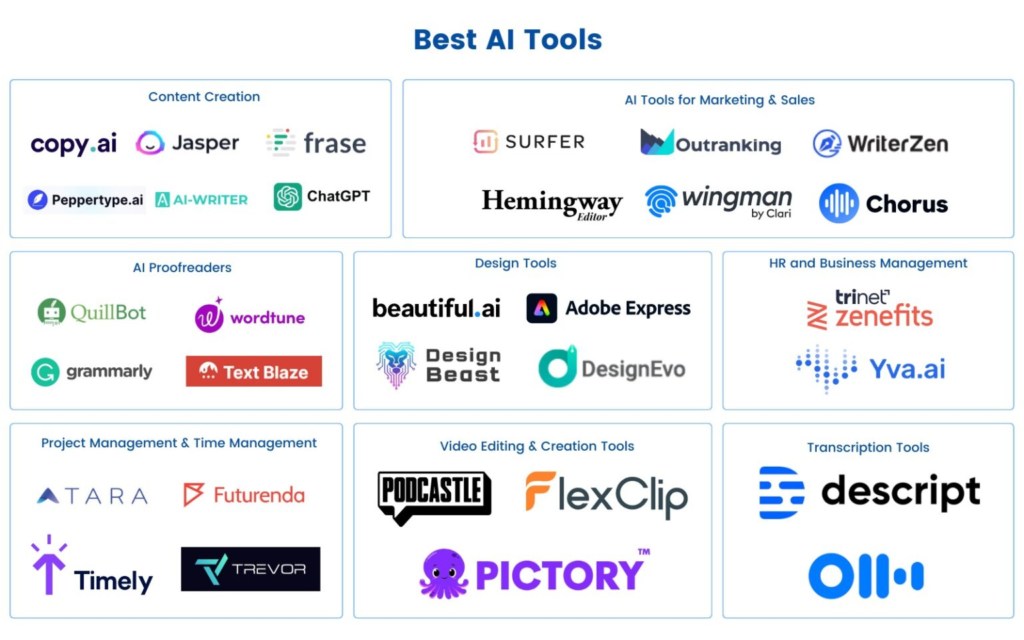
AI-powered tools and platforms have significantly transformed social media marketing by offering advanced analytics, content creation, and customer interaction capabilities.
These tools leverage artificial intelligence to help businesses understand their audience better, automate repetitive tasks, and enhance their social media strategies. Here’s an overview of various types of tools and platforms that leverage AI in social media marketing:
Content Creation and Optimization
- Lumen5: Utilizes AI to transform text content into engaging video content, making it easier for brands to share their stories on social media.
- QuillBot: An AI-powered writing tool that helps refine and optimize social media posts for better engagement.
Chatbots and Customer Service
- ManyChat: Allows for the creation of AI-powered chatbots to engage customers on social media platforms, providing instant responses and improving customer service.
- Drift: Offers an AI-driven marketing platform that includes chatbots for social media, enhancing customer interaction and lead generation.
Influencer Marketing
- Klear: An AI-powered influencer marketing platform that helps brands find the right influencers by analyzing billions of social media posts.
- BuzzSumo: Utilizes AI to analyze data on the most shared content and key influencers in specific topics or industries.
Predictive Analytics and Trend Forecasting
- Pattern89: Offers AI-driven predictions on which creative elements will perform best in social media ads.
- Talkwalker’s Quick Search: Uses AI to identify trends in social media conversations, helping brands to capitalize on emerging trends.
Content Personalization and Recommendation
- Dynamic Yield: Uses AI to personalize website content and recommendations, which can be integrated into social media strategies to target specific audiences.
- Curata: An AI-powered content curation tool that helps in finding and sharing relevant content with your audience, keeping your social media feeds active and engaging.
Each of these tools and platforms uses AI in unique ways to enhance different aspects of social media marketing, from content creation to customer engagement and analytics.
By leveraging these AI capabilities, businesses can create more effective and efficient social media marketing strategies.
Chapter 6: AI in Advertising and Promotions
Integrating artificial intelligence (AI) into advertising and promotions has significantly enhanced the efficiency and effectiveness of marketing campaigns.
Machine learning allows us to build software solutions that exceed human understanding and shows us how AI can innervate every industry.
Steve Jurvetson, Board Member of SpaceX and Tesla
By leveraging AI, businesses can automate and optimize ad placements, targeting, and promotional strategies, leading to higher engagement, conversion rates, and ROI.
This chapter explores the role of AI in programmatic advertising, and the optimization of promotional strategies, and presents case studies of successful AI-driven advertising campaigns.
Programmatic Advertising: AI Algorithms for Ad Placement and Targeting
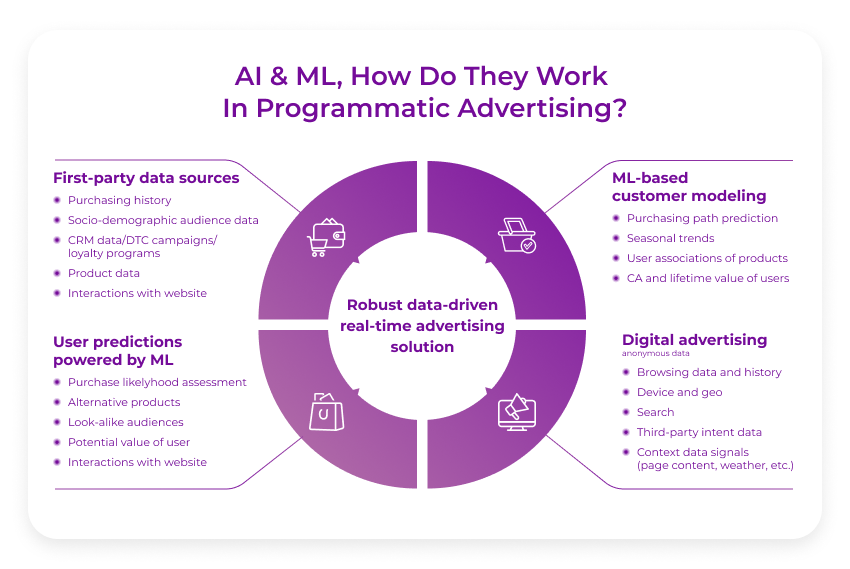
Programmatic advertising utilizes AI to automate the buying and placement of ads, enabling advertisers to reach their target audience more efficiently and effectively.
Through real-time bidding (RTB), ads are placed in milliseconds, ensuring that the right message reaches the right person at the right time.
- Dynamic Ad Targeting: AI algorithms analyze user data, including browsing behavior, purchase history, and demographics, to serve personalized ads that are more likely to result in a conversion.
- Optimized Ad Spending: By continuously analyzing campaign performance data, AI optimizes ad spending across channels and platforms, ensuring that budget allocations are maximized for the best possible outcomes.
- Improved Ad Performance: AI-powered analytics provide insights into which ad formats, creative elements, and messages perform best, enabling advertisers to refine their strategies for better engagement and conversion rates.
AI in Optimizing Promotional Strategies and Campaigns
AI plays a crucial role in developing and optimizing promotional strategies that resonate with target audiences and achieve marketing objectives.
- Predictive Analytics: Utilizing AI to analyze past campaign data and market trends, businesses can predict future consumer behavior and preferences, tailoring their promotional strategies accordingly.
- Personalized Promotions: AI enables the customization of promotions to individual consumer profiles, increasing the relevance and effectiveness of marketing messages.
- Efficiency and Automation: From scheduling promotions to selecting the most appropriate channels for dissemination, AI automates many aspects of campaign management, allowing marketers to focus on strategic decision-making.
Case Studies of Successful AI-driven Advertising Campaigns
Several brands have successfully leveraged AI in their advertising campaigns, demonstrating the technology’s potential to transform marketing strategies.
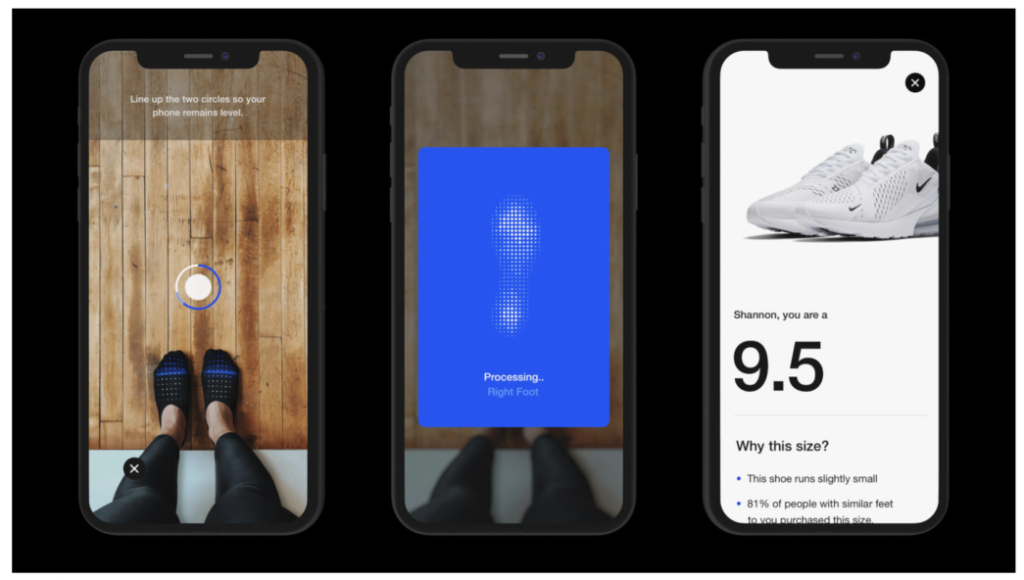
Nike’s Use of AI for Product Customization
- Overview: Nike leveraged AI to offer personalized shoe designs through its Nike By You platform, allowing customers to create customized sneakers.
- Success Metrics: This initiative not only increased sales but also strengthened brand loyalty by providing a unique shopping experience.
- Key Takeaways: Offering personalized products through AI can differentiate a brand and foster a deeper connection with its customers.

Coca-Cola’s AI-Driven Marketing Campaigns
- Overview: Coca-Cola has implemented AI in various marketing campaigns to analyze social media data for consumer insights, automate digital ad creation, and optimize media buying.
- Success Metrics: Increased efficiency in ad creation and placement, better targeting, and enhanced customer engagement.
- Key Takeaways: AI can streamline marketing processes, from creative development to media buying, leading to more effective and cohesive campaigns.
Netflix’s Use of AI for Personalized Recommendations

- Overview: Netflix utilized AI to analyze vast amounts of data on viewer preferences to personalize content recommendations, significantly enhancing user engagement and retention.
- Success Metrics: This AI-driven approach contributed to Netflix’s high customer satisfaction rates and played a crucial role in its growth, with millions of global subscribers.
- Key Takeaways: Effective use of AI in understanding consumer preferences can lead to improved customer experiences and increased loyalty.
Starbucks’ Deep Brew AI Program
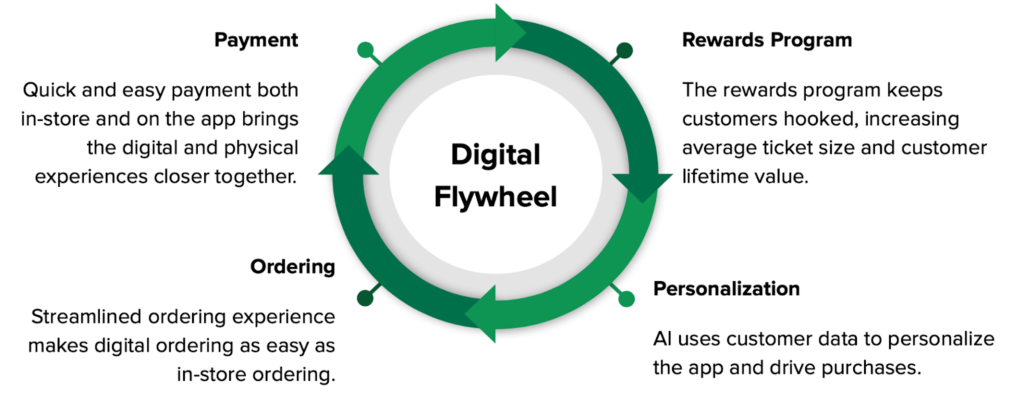
- Overview: Starbucks’ Deep Brew AI initiative optimizes personalization in marketing efforts, improves inventory management, and streamlines operations.
- Success Metrics: Enhanced customer experiences through personalized offers, leading to increased sales and customer loyalty.
- Key Takeaways: AI can enhance operational efficiency and customer satisfaction by predicting customer preferences and streamlining service delivery.
L’Oréal’s AI Beauty Tech

- Overview: L’Oréal utilized AI for virtual makeup try-ons and personalized skin care recommendations through its ModiFace technology.
- Success Metrics: Increased engagement on digital platforms and higher conversion rates by providing a highly personalized and interactive shopping experience.
- Key Takeaways: Integrating AI into the consumer journey can transform the shopping experience, making it more engaging and personalized.
AI’s role in advertising and promotions is transformative, offering precision targeting, efficiency, and personalization that were previously unattainable.
Through programmatic advertising, optimized promotional strategies, and innovative applications of AI, businesses can significantly enhance their marketing efforts, leading to more successful campaigns and a stronger connection with their audience.
The case studies of Nike, Spotify, and Coca-Cola highlight the practical applications and benefits of AI in marketing, serving as inspiration for other brands to explore AI-driven strategies.
Chapter 7: Sales and CRM Applications
Some people call this artificial intelligence, but the reality is this technology will enhance us. So instead of artificial intelligence, I think we'll augment our intelligence
Ginni Rometty, CEO of IBM
Artificial intelligence (AI) is revolutionizing the sales and customer relationship management (CRM) landscape by enabling more accurate forecasting, efficient lead generation, and personalized customer experiences.
AI’s capabilities to analyze large datasets, recognize patterns and predict outcomes are transforming how businesses approach sales and manage relationships with their customers.
This chapter explores the applications of AI in sales forecasting, lead generation, the enhancement of CRM through personalization and efficiency, and the tools available for integrating AI into sales and CRM systems.
AI Applications in Sales Forecasting and Lead Generation
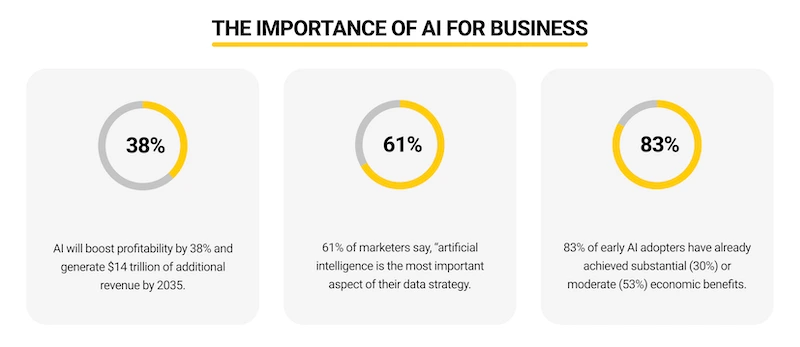
AI significantly improves the accuracy of sales forecasting and the effectiveness of lead generation processes, enabling businesses to make informed decisions and optimize their sales strategies.
- Sales Forecasting: AI algorithms analyze historical sales data, market trends, and external factors such as economic indicators to predict future sales. This predictive capability allows businesses to plan more effectively, manage inventory levels, and allocate resources efficiently.
- Lead Generation: AI can analyze data from social media, website interactions, and customer databases to identify potential leads. By scoring leads based on their conversion likelihood, AI helps sales teams prioritize efforts and tailor their approaches to different segments.
Enhancing CRM with AI: Personalization and Efficiency
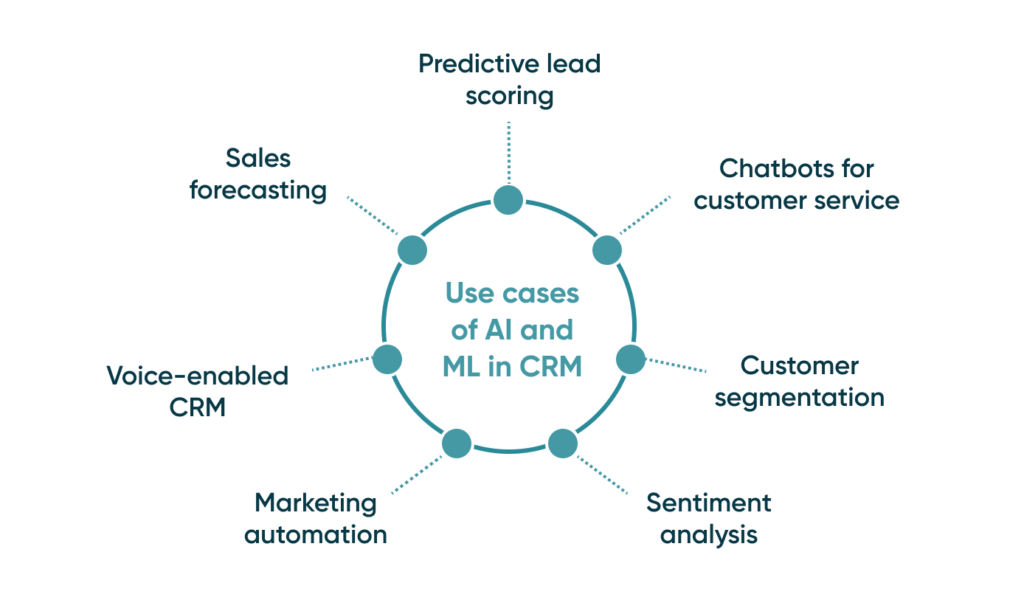
AI enhances CRM systems by providing a level of personalization and efficiency that was previously unattainable, leading to improved customer satisfaction and loyalty.
- Personalized Customer Interactions: AI enables the customization of communication and offers individual customer preferences and behaviors. By analyzing customer data, AI can suggest products or services that are more likely to be of interest, enhancing the customer experience and increasing sales opportunities.
- Automated Customer Service: AI-powered chatbots and virtual assistants can handle routine inquiries and tasks, providing immediate responses to customer queries and freeing up human agents to deal with more complex issues. This not only improves efficiency but also enhances customer satisfaction by reducing wait times.
- Predictive Customer Insights: AI can predict customer needs and behaviors, enabling proactive engagement. For example, if AI detects that a customer may be at risk of churning, it can trigger targeted retention strategies to address their concerns and improve their experience.
Tools for Integrating AI into Sales and CRM
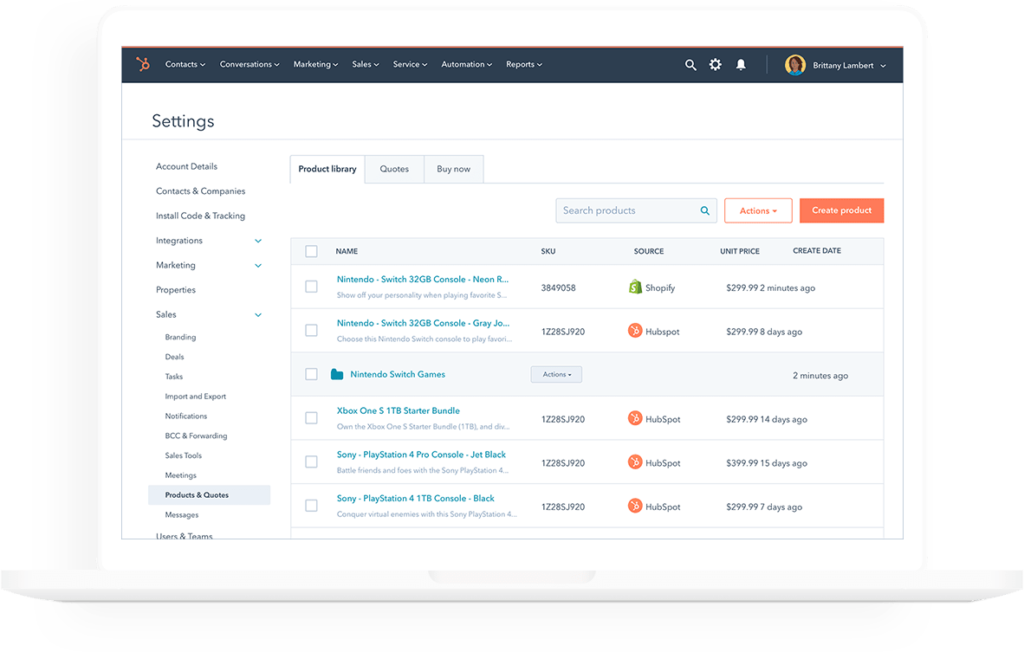
A variety of tools and platforms are available to integrate AI into sales and CRM systems, offering features such as predictive analytics, lead scoring, and AI-powered chatbots.
- Salesforce Einstein: An AI layer built into the Salesforce platform, Einstein provides predictive analytics, lead scoring, and recommendation engines to enhance sales and CRM activities.
- HubSpot Sales Hub: This platform utilizes AI for predictive lead scoring, helping sales teams focus on the most promising leads. It also offers email automation and personalization features.
- Zoho CRM: Zoho’s AI assistant, Zia, offers sales forecasting, trend analysis, and sentiment analysis, helping businesses optimize their sales and CRM strategies.
The application of AI in sales and CRM enhances the efficiency and effectiveness of these functions and transforms the customer experience through personalization.
By leveraging AI for sales forecasting, lead generation, and CRM optimization, businesses can achieve a competitive advantage, driving growth and customer loyalty. The tools mentioned provide a starting point for integrating AI into sales and CRM processes, offering a range of functionalities to meet different business needs.
Chapter 8: Challenges and Ethical Considerations
As artificial intelligence (AI) becomes increasingly integral to marketing strategies, it introduces a complex array of challenges and ethical considerations.
In the long term, artificial intelligence and automation are going to be taking over so much of what gives humans a feeling of purpose
Matt Bellamy, Lead Singer of Muse
The deployment of AI in marketing raises questions about privacy, data protection, and the balance between leveraging AI for business gains and maintaining ethical standards.
This chapter delves into the ethical landscape of AI in marketing, highlighting key areas of concern such as privacy issues, data protection, and the interplay between human intuition and AI decision-making.
Navigating the Ethical Landscape of AI in Marketing
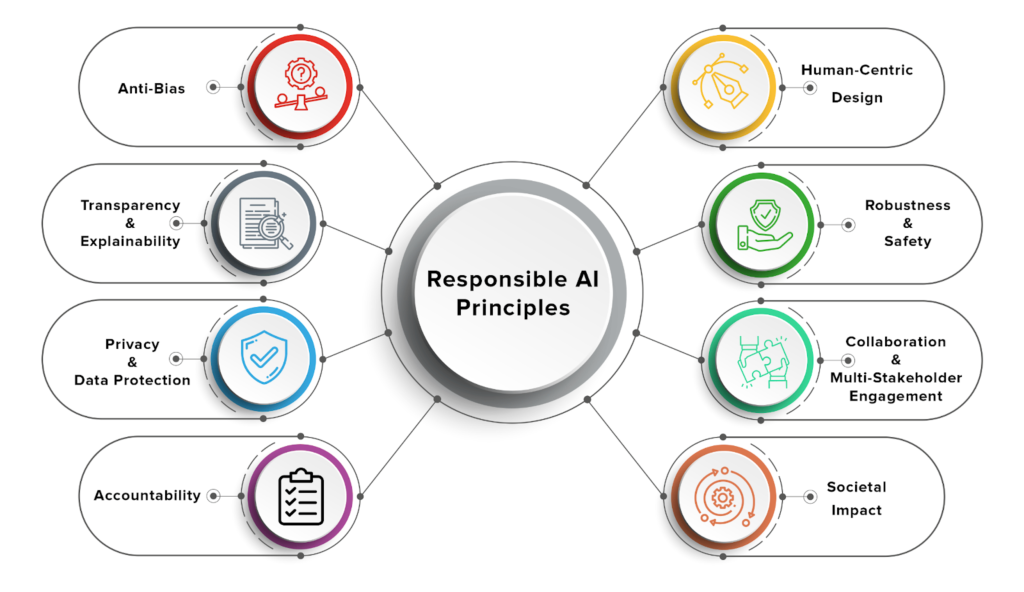
The ethical deployment of AI in marketing requires careful consideration of how technology impacts both consumers and the broader society. Ethical guidelines and principles need to be established to ensure that AI applications in marketing are developed and used responsibly.
Transparency and Accountability
- Businesses must ensure transparency in how AI systems are used in their marketing strategies, including the data these systems are trained on and the decision-making processes they utilize.
- Accountability measures should be in place to address any adverse outcomes or biases in AI-driven marketing practices.
Fairness and Bias Mitigation
- AI systems can inadvertently perpetuate or even exacerbate biases if they are trained on biased data sets.
- It’s crucial to implement fairness and bias mitigation strategies, such as diverse training data and ongoing bias monitoring, to ensure that marketing practices are equitable and do not discriminate against certain groups.
Privacy Concerns and Data Protection
The use of AI in marketing often involves the collection, analysis, and storage of vast amounts of personal data, raising significant privacy and data protection concerns.
Consent and Choice
- Ensuring that customers have a clear understanding of what data is being collected, how it is being used, and the option to opt-out is fundamental.
- Consent should be informed and freely given, complying with global data protection regulations like GDPR in Europe and CCPA in California.
Data Security
- With the increase in data breaches and cyber threats, maintaining the security of customer data is paramount.
- Businesses must implement robust security measures to protect data and be transparent with customers about any breaches that may impact their personal information.
Balancing Human Intuition with AI Decision-Making
While AI can process and analyze data at a scale far beyond human capability, it lacks the intuitive understanding and ethical reasoning that humans possess. Balancing AI decision-making with human intuition is essential for ethical marketing practices.
- Complementary Strengths: Leveraging the strengths of both AI and human intuition can lead to more effective and ethical marketing strategies. AI can handle data-driven tasks and predictive analytics, while humans can provide ethical oversight, creativity, and strategic thinking.
- Human Oversight: Ensuring that AI systems in marketing are overseen by humans who can interpret their outputs, question their decisions, and intervene when necessary is crucial. This oversight helps to mitigate the risks of relying solely on AI for decision-making.
By focusing on transparency, fairness, privacy, and the complementary roles of AI and human intuition, businesses can address the ethical challenges posed by AI in marketing.
Establishing and adhering to ethical guidelines will not only protect consumers and society but also build trust and credibility in the brand, ultimately contributing to long-term success.
Chapter 9: The Future of Marketing with AI
The future of marketing with AI is poised to be transformative, driven by rapid advancements in technology and shifting consumer expectations. As AI technologies evolve, they are set to redefine how businesses engage with customers, personalize experiences, and execute marketing strategies.
AI is not a replacement for human intelligence; it's a tool that enhances it. When combined with human creativity and expertise, AI has the potential to revolutionize industries and solve some of our most pressing challenges
Fei-Fei Li
This chapter explores the emerging trends and technologies in AI for marketing, how businesses can prepare for the future, and the role of AI in shaping future marketing paradigms.
Emerging Trends and Technologies in AI for Marketing
The horizon of AI in marketing is broadening, with several key trends and technologies emerging as game-changers.
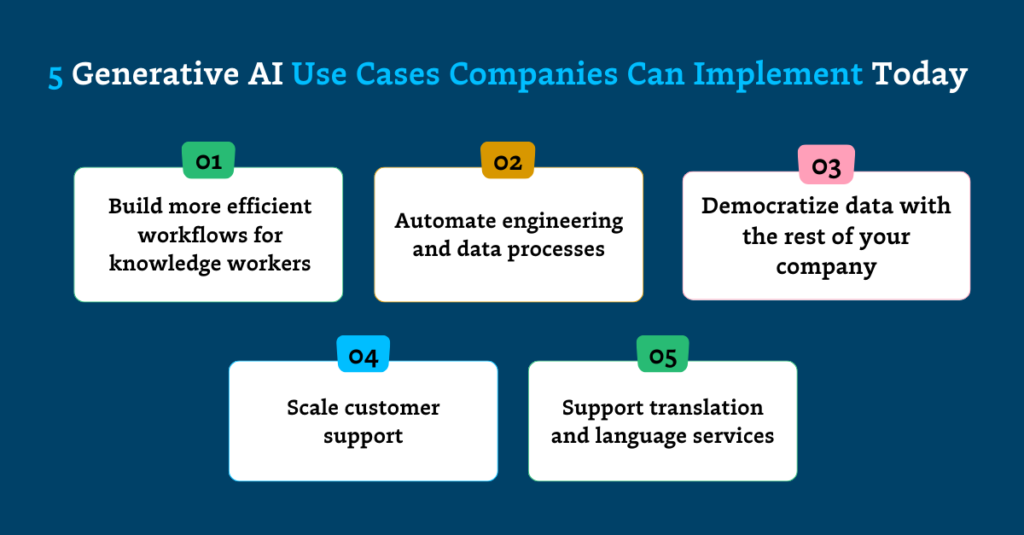
- Generative AI: Technologies like GPT (Generative Pre-trained Transformer) and DALL-E are revolutionizing content creation, enabling the automated generation of text, images, and videos that are tailored to specific audiences and contexts.
- Augmented Reality (AR) and Virtual Reality (VR): AR and VR are enhancing customer experiences by providing immersive interactions with products or services, offering a new dimension to customer engagement and product visualization.
- Voice and Conversational AI: As voice-activated devices become more prevalent, voice and conversational AI are transforming search behaviors and customer service interactions, making them more natural and intuitive.
- Predictive and Prescriptive Analytics: Advanced analytics capabilities are enabling more accurate forecasting of consumer behavior and market trends, allowing businesses to anticipate customer needs and optimize their marketing efforts accordingly.
Preparing for the Future: Skills, Strategies, and Mindsets
To capitalize on the opportunities presented by AI in marketing, businesses must cultivate the right skills, strategies, and mindsets.
- Data Literacy and AI Skills: Understanding the basics of AI and data analytics is becoming essential for marketers. Familiarity with data-driven decision-making, machine learning concepts, and the ethical use of AI is crucial.
- Agile and Adaptive Strategies: The pace of change in AI technologies requires businesses to adopt flexible and adaptive marketing strategies. This involves continuous learning, experimentation, and the willingness to pivot based on new insights and technologies.
- Customer-Centric Mindset: As AI enables deeper personalization, maintaining a customer-centric approach is vital. This means prioritizing customer privacy, and transparency, and delivering value through personalized experiences.
The Role of AI in Shaping Future Marketing Paradigms
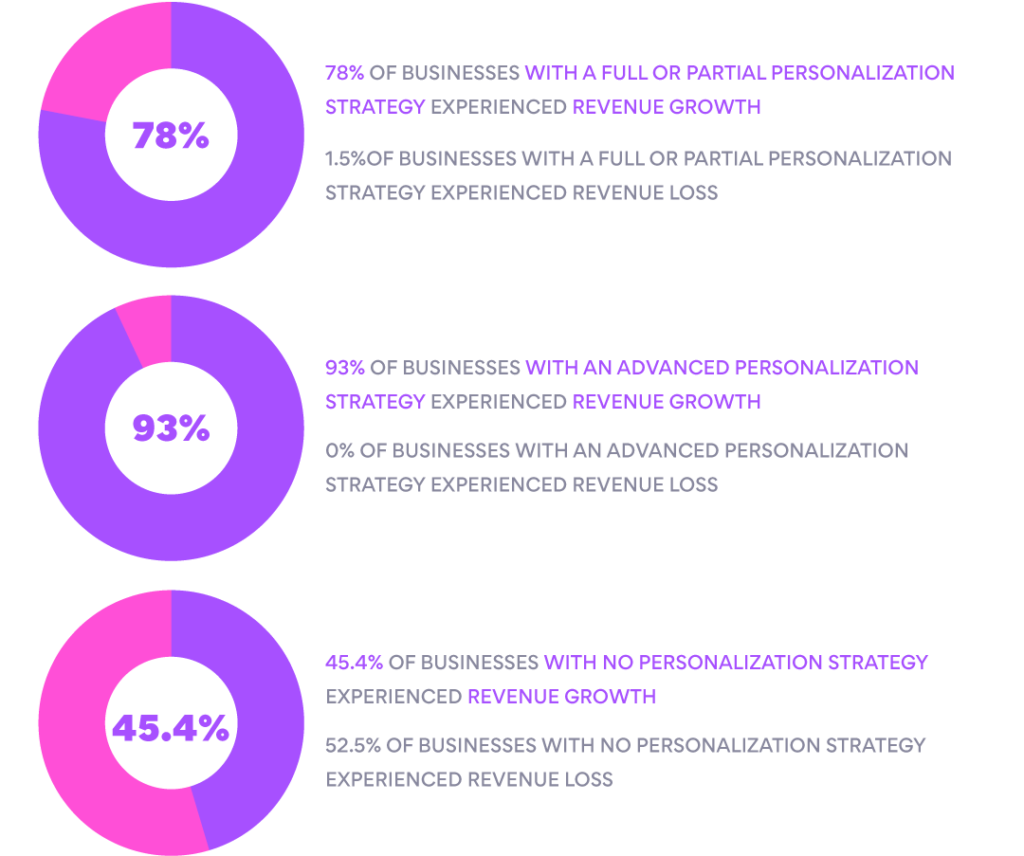
AI is not just a tool for enhancing existing marketing practices; it’s reshaping the very paradigms of marketing.
- From Mass Marketing to Individualized Experiences: AI facilitates a shift from broad, generalized marketing efforts to highly individualized customer experiences, enabling brands to engage with consumers on a personal level at scale.
- Enhanced Decision-Making: AI’s predictive capabilities are making marketing decisions more data-driven, reducing guesswork, and enabling more strategic allocation of resources.
- Ethical Marketing Practices: As AI raises ethical considerations around privacy and data use, it also offers solutions for more transparent and responsible marketing practices, fostering trust between businesses and consumers.
By embracing emerging trends and technologies, developing the necessary skills, and adopting the right strategies and mindsets, businesses can navigate the future landscape of marketing with AI effectively.
The role of AI in marketing is evolving from a supportive tool to a central pillar in shaping marketing strategies, offering unprecedented opportunities to connect with customers in meaningful ways.
Chapter 10: AI, Blockchain, and Marketing
The integration of Artificial Intelligence (AI) and blockchain technology is setting the stage for a transformative leap in the marketing domain.
Artificial intelligence will reach human levels by around 2029. Follow that out further to, say, 2045, we will have multiplied the intelligence, the human biological machine intelligence of our civilization a billion-fold
Ray Kurzweil
This chapter delves into the synergistic potential of AI and blockchain, exploring how their intersection is reshaping marketing strategies, enhancing transparency and security, and paving the way for innovative marketing solutions.
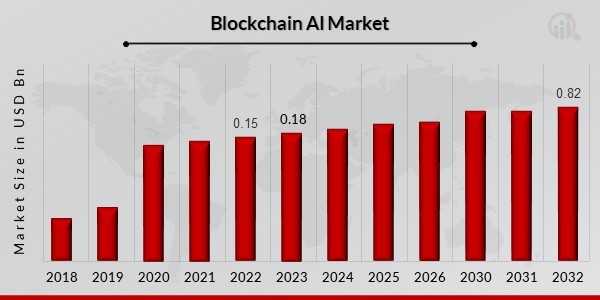
Investigating the Intersection of AI and Blockchain in Marketing
- AI and blockchain are converging in marketing.
- AI brings predictive analytics, machine learning, and data-driven insights.
- Blockchain offers an immutable ledger, ensuring transparency and security of data.
- This intersection is particularly potent in marketing for data authenticity, customer trust, and personalized experiences.
- By combining AI and blockchain, marketers can create more effective, trustworthy, and customer-centric campaigns.
Potential Use Cases of Blockchain in Ensuring Transparency and Security in AI-driven Marketing
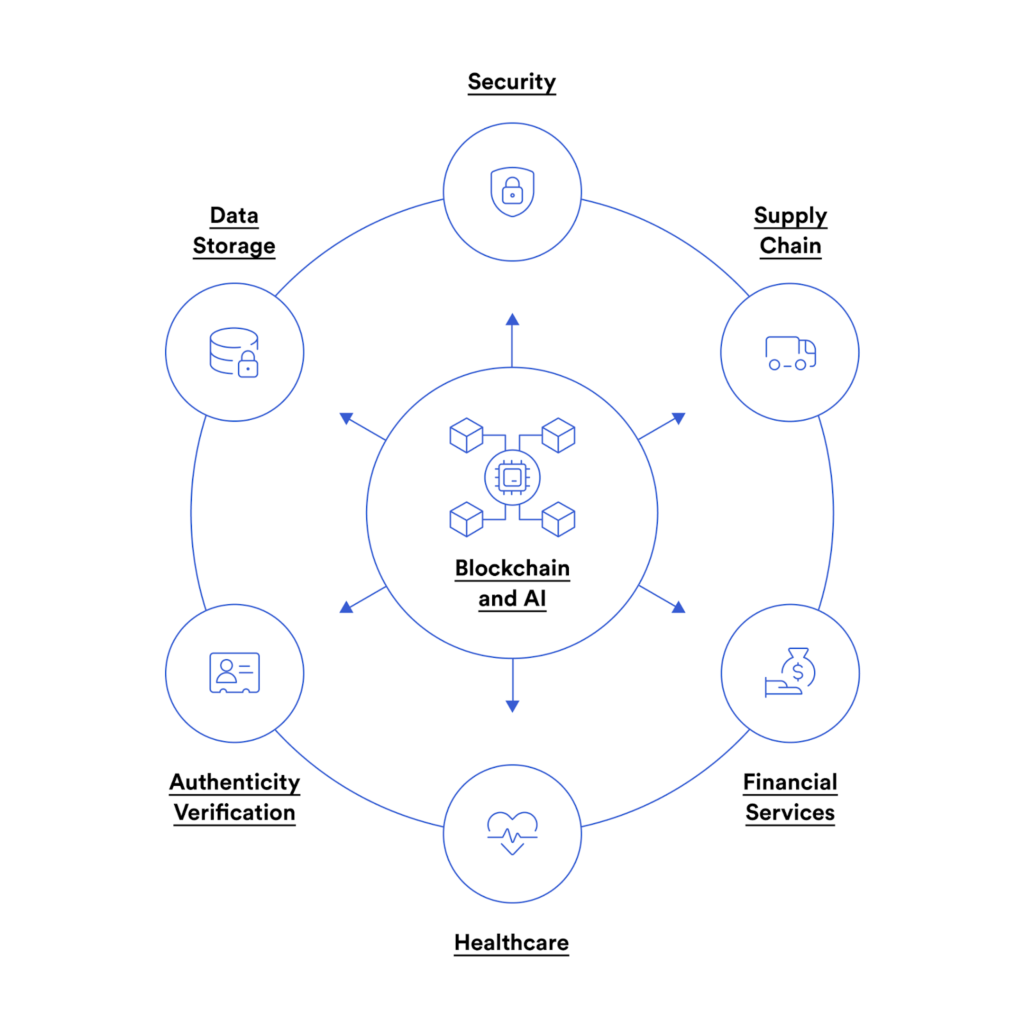
Customer Data Protection:
Blockchain can secure customer data collected through AI tools, ensuring that personal information is stored in a tamper-proof manner. This not only enhances data security but also builds trust with customers wary of sharing personal information.
Transparent Advertising Networks:
- The use of blockchain in programmatic advertising can bring transparency to ad deliveries, preventing fraud and ensuring advertisers pay only for genuine interactions.
- When combined with AI’s targeting capabilities, this can significantly improve the efficiency and trustworthiness of online advertising campaigns.
Verifiable Influencer Marketing:
Blockchain can authenticate the legitimacy of influencers’ followers and engagements, providing marketers with a transparent mechanism to verify influencer metrics. AI can then analyze these metrics to predict the potential ROI of influencer partnerships.
Loyalty Programs and Smart Contracts:
Blockchain enables the creation of smart contracts for loyalty programs, automating rewards transparently and securely. AI can enhance this by personalizing rewards based on customer behavior and preferences, thereby increasing engagement and loyalty.
Future Implications of Combining AI and Blockchain for Marketing Innovations
- Decentralized Marketing Ecosystems: The fusion of AI and blockchain could lead to the development of decentralized marketing platforms where data and transactions are secure, transparent, and not owned by any single entity.
- Enhanced Consumer Sovereignty Over Data: Blockchain could enable a future where consumers have more control over their data, deciding whom to share it with and under what conditions.
- Automated Regulatory Compliance: The combination of AI and blockchain could automate compliance with various data protection and privacy regulations, reducing the burden on businesses and protecting consumer rights more effectively.
- Innovative Payment Solutions: Blockchain and AI could collaborate to create new payment solutions for the marketing industry, such as using cryptocurrencies for transactions or AI-driven dynamic pricing models based on real-time market data stored on blockchains.
The intersection of AI and blockchain holds immense promise for the marketing industry, offering solutions that are not only more efficient and personalized but also secure and transparent.
As these technologies continue to evolve, their integration will likely lead to a paradigm shift in how marketing data is collected, analyzed, and utilized, heralding a new era of innovative marketing strategies that prioritize consumer trust and data integrity.
Chapter 11: Measuring AI's ROI in Marketing Campaigns
Assessing the return on investment (ROI) of Artificial Intelligence (AI) in marketing campaigns is crucial for businesses to justify the burgeoning investments in AI technologies.
AI has the power to transform industries and change the world for the better
Jensen Huang
This chapter explores the methodologies and metrics for evaluating AI’s effectiveness in marketing, addresses the inherent challenges in quantifying AI’s impact, and provides insights from real-world cases on leveraging AI for marketing success.
Methods and Metrics for Assessing the Effectiveness and ROI of AI in Marketing
- Incremental Sales and Revenue: The most direct method to measure AI’s ROI is by tracking the incremental sales and revenue attributable to AI-driven marketing campaigns. This involves comparing sales figures before and after the implementation of AI strategies.
- Customer Lifetime Value (CLTV): AI’s impact on marketing can be assessed by analyzing changes in the Customer Lifetime Value. AI-driven personalization and customer engagement strategies often lead to higher CLTV, indicating a positive ROI.
- Conversion Rates: The effectiveness of AI in marketing can be measured by the improvement in conversion rates across various channels. AI optimizations in ad targeting, content personalization, and customer journeys are designed to convert more prospects into customers.
- Cost Per Acquisition (CPA): By automating and optimizing marketing campaigns, AI can reduce the cost per acquisition, making marketing efforts more efficient. Tracking changes in CPA before and after employing AI tools can provide insights into AI’s ROI.
- Engagement Metrics: AI’s role in enhancing customer engagement can be quantified by tracking metrics such as click-through rates (CTR), time spent on the website, and social media engagement rates.
Challenges in Quantifying AI's Impact and How to Overcome Them
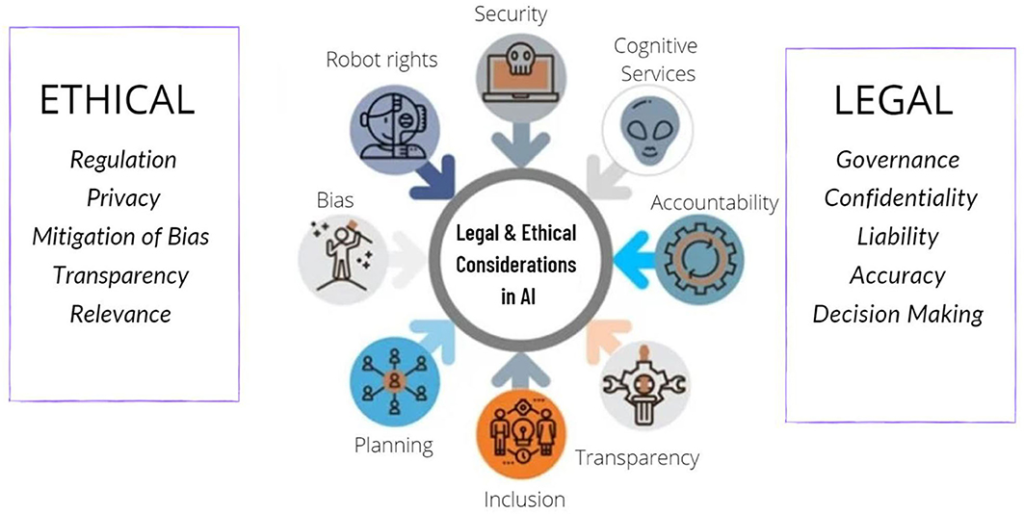
- Attribution Modeling: One of the primary challenges in measuring AI’s ROI is attributing results directly to AI interventions amidst multiple concurrent marketing strategies. Overcoming this requires adopting sophisticated attribution models that can isolate the effects of AI from other variables.
- Data Quality and Integration: AI’s effectiveness is contingent on the quality and integration of data across platforms. Ensuring clean, comprehensive, and integrated data is critical to accurately measure AI’s impact.
- Long-term vs. Short-term Impact: AI’s ROI should not be assessed solely on immediate results. AI strategies often yield long-term benefits, such as improved customer loyalty, that are not immediately apparent. Businesses should adopt a long-term perspective when evaluating AI’s ROI.
- Lack of Baseline Measurements: Without pre-AI implementation benchmarks, assessing the impact can be challenging. Establishing clear baseline metrics before AI deployment is crucial for effective measurement.
Real-world Insights and Analytics on AI Investments in Marketing
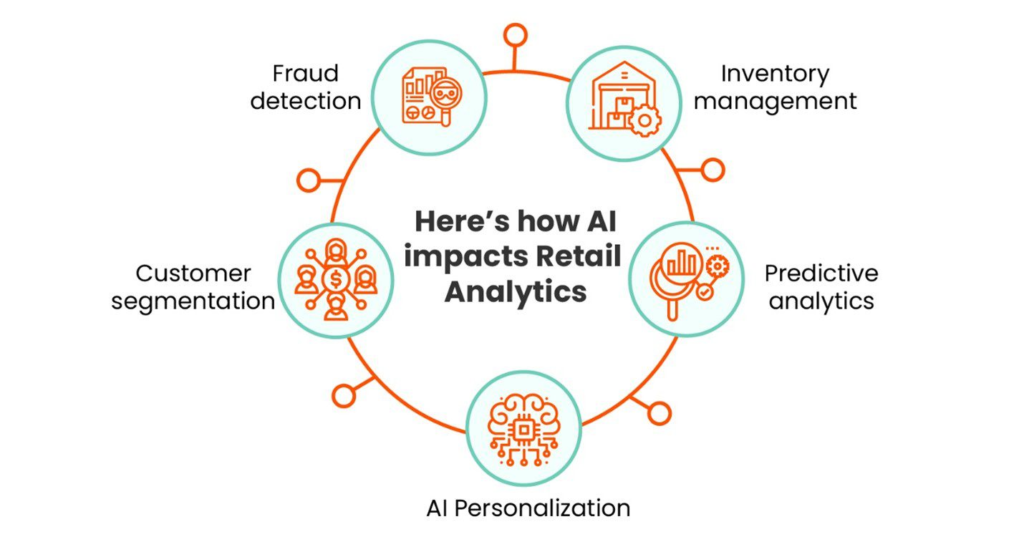
- Case Study: E-commerce Personalization: An e-commerce brand implemented AI to personalize product recommendations. The campaign resulted in a 35% increase in conversion rates and a 50% increase in average order value, showcasing a clear ROI from AI.
- Retail Chain: AI-driven Inventory Management: A retail chain utilized AI for inventory optimization and predictive analytics, reducing stockouts by 25% and excess inventory by 30%, significantly improving profitability.
- B2B Marketing: Lead Scoring and Segmentation: A B2B company employed AI for lead scoring and segmentation, leading to a 40% increase in lead conversion rates and a 20% reduction in sales cycle length.
Measuring the ROI of AI in marketing campaigns involves a multifaceted approach that considers various performance metrics and overcomes inherent measurement challenges.
Despite these challenges, real-world cases across industries demonstrate that with the right strategies and analytics, businesses can effectively quantify the impact of their AI investments, leading to more informed decisions and optimized marketing efforts.
As AI technologies and methodologies evolve, so too will the precision and understanding of AI’s ROI in marketing, paving the way for more targeted, efficient, and successful marketing strategies.
Chapter 12: Voice Search and AI-Powered Assistants in Marketing
The emergence of voice search and AI-powered assistants has significantly altered the marketing landscape, introducing new paradigms for consumer interaction and content discovery.
The possibilities with AI are limited only by our imagination
Elon Musk
This chapter explores the rise of voice search optimization, the impact of AI assistants on marketing, and strategies for businesses to effectively leverage these technologies.
The Rise of Voice Search Optimization and Its Significance in SEO Strategies
Growth of Voice Search:
The increasing use of AI-powered assistants like Siri, Alexa, and Google Assistant has led to a surge in voice search queries. This shift is driven by the convenience and improved accuracy of voice recognition technologies, making voice search a critical area for SEO optimization.
Impact on SEO:
Voice search queries often differ from traditional text searches, tending to be longer and more conversational. This has implications for SEO strategies, which must now account for natural language and question-based queries.
Optimizing for voice search requires a focus on featured snippets, local search optimizations, and content that answers specific questions.
How AI-Powered Assistants are Changing the Marketing Landscape
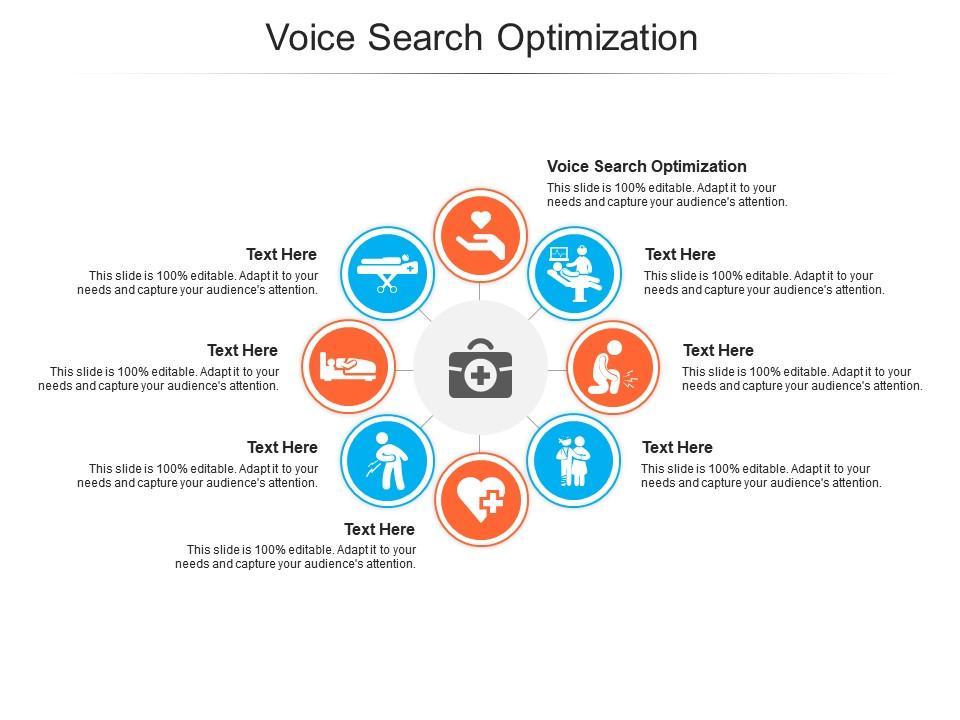
Personalized Experiences:
AI assistants are increasingly capable of providing personalized recommendations and information to users based on their past behavior, preferences, and context. This personalization presents opportunities for marketers to deliver tailored content and advertisements through these platforms.
New Consumer Touchpoints:
AI assistants create new touchpoints for engaging consumers, from voice-activated shopping to personalized news briefings. Marketers need to understand these touchpoints and integrate them into omnichannel marketing strategies to reach consumers effectively.
Data Insights:
The interactions between consumers and AI assistants generate vast amounts of data, offering deep insights into consumer preferences, behaviors, and intents. Marketers can use these insights to refine targeting strategies and improve customer experiences.
Strategies for Businesses to Leverage Voice Search and AI Assistants
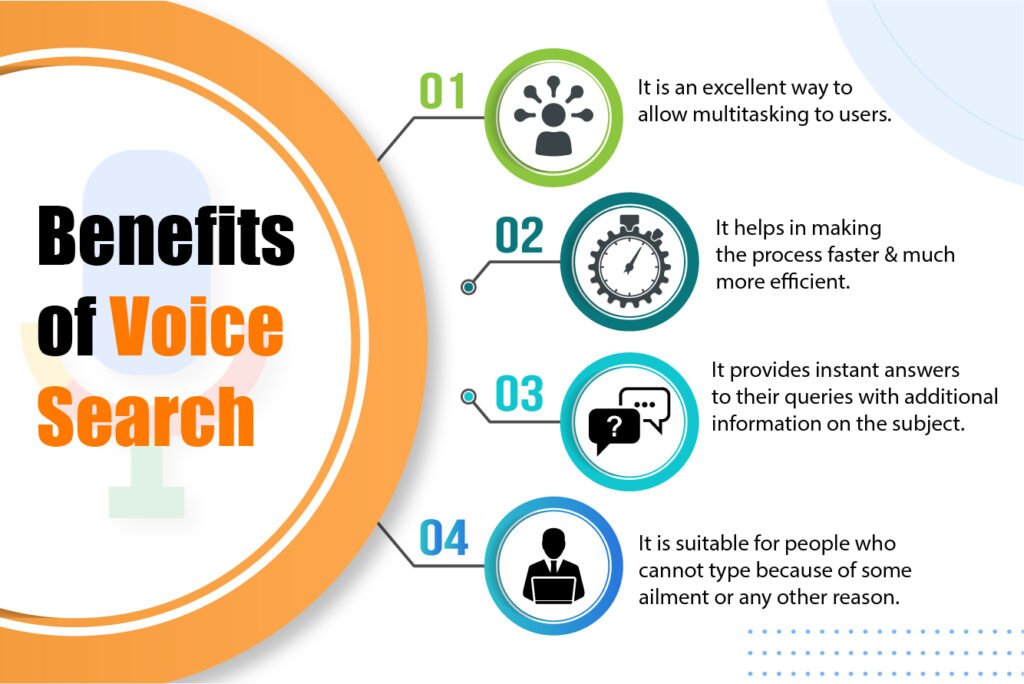
Content Optimization for Conversational Queries:
Develop content that directly answers questions consumers are likely to ask, using a natural, conversational tone. Focus on long-tail keywords and implement schema markup to improve the chances of appearing in voice search results
Local SEO Enhancements:
Since many voice searches are local, businesses should optimize their local SEO strategies. This includes claiming Google My Business listings, optimizing for “near me” searches, and ensuring NAP (Name, Address, Phone Number) consistency across online platforms.
Creating Skills and Actions:
Businesses can develop custom skills for Alexa or actions for Google Assistant to directly engage with consumers through AI assistants. These can range from informational resources to interactive games and shopping experiences.
Voice-Activated Shopping:
With the increasing popularity of shopping through voice commands, businesses should consider integrating their product catalogs with AI assistants. This involves optimizing product descriptions for voice search and ensuring a seamless purchase process.
Monitoring and Analytics:
Implement tools and processes to monitor how consumers are engaging with your brand through voice search and AI assistants. Use this data to continuously refine and optimize your voice search strategies.
The rise of voice search and AI-powered assistants represents a fundamental shift in how consumers interact with digital content and make purchasing decisions.
By understanding the nuances of voice search optimization, leveraging the personalization capabilities of AI assistants, and adopting strategic approaches to engage consumers through these new channels, businesses can enhance their marketing strategies to align with the evolving digital landscape.
Chapter 13: Leading Companies Impacting AI
The potential of artificial intelligence knows no bounds. It's a powerful force for good, capable of solving some of humanity's most pressing challenges
Demis Hassabis
Focusing on leading companies that are making significant impacts in the field of AI and their contributions to marketing, here’s a list and a brief overview of each:
1. Google

- Google’s parent company Alphabet is leading the way in AI research and application.
- Google Ads and Analytics use AI to revolutionize how businesses target, reach, and understand their audiences.
- Google’s search algorithms use AI to deliver more relevant search results, affecting global SEO strategies.
- Google’s developments in natural language processing (NLP) with BERT and other models have transformed content marketing, making it more important than ever to focus on the quality and relevance of content
2. Facebook (Meta)

- Facebook, now known as Meta, leverages AI across its family of apps to personalize content, and ads, and enhance user engagement.
- Its sophisticated AI algorithms help marketers target their ads with incredible precision, based on vast amounts of data on user behavior and preferences.
- Meta’s investment in AI research also extends to augmented reality (AR) and virtual reality (VR), areas that are expected to play significant roles in the future of marketing.
3. Amazon

- Amazon uses AI to optimize the consumer shopping experience.
- AI-based recommendation engines suggest products based on browsing and purchasing history.
- Personalization through AI increases sales and customer loyalty.
- Amazon’s AI capabilities extend to advertising services, improving ad targeting and performance measurement.
- Machine learning algorithms make Amazon a powerful platform for marketers
4. Microsoft

- Microsoft’s AI contributions are vast, with Azure AI being a central piece, offering a suite of AI services that support marketing analytics, customer service bots, and personalized customer experiences.
- Microsoft’s AI also powers LinkedIn’s marketing solutions, enabling targeted B2B marketing strategies and insights.
- Through its research and development in AI, Microsoft provides tools that help businesses automate processes, analyze data, and engage customers more effectively.
These companies are not just leaders in AI technology but also shape how marketing is conducted in the digital age. Their contributions are pivotal in driving the future of marketing towards more personalized, efficient, and data-driven practices.
Conclusion
The Impact of AI on Marketing: Transforming Strategies and Enhancing Consumer Experiences” offers a comprehensive exploration of the transformative power of Artificial Intelligence (AI) across the marketing landscape.
From its evolutionary journey to its current significance in shaping marketing strategies and enhancing consumer interactions, AI has emerged as a pivotal force in redefining industry norms.
This delves into the fundamentals of AI in marketing, uncovering the key technologies—such as machine learning, natural language processing, and computer vision—that are driving change.
t illustrates how AI-driven market research and consumer insights revolutionize traditional methodologies, enabling a deeper understanding of consumer behavior and facilitating more accurate predictions.
In the realm of personalization and customer experience, AI’s capability to craft tailored marketing messages and enhance customer interactions is highlighted through real-world examples. This personalization extends into content creation and curation, where AI tools are shown to significantly impact content marketing strategies by automating processes and ensuring content relevance and engagement.
Social media and influencer marketing benefit from AI’s ability to analyze trends and predict the effectiveness of influencer partnerships, showcasing AI’s role in optimizing social media strategies.
In conclusion, AI is not just an adjunct to marketing; it is a transformative force that redefines how businesses engage with their consumers, offering unparalleled insights, efficiency, and personalization. As we navigate this evolving landscape, embracing AI in marketing strategies becomes not just an option but a necessity for those aiming to remain competitive and responsive to consumer needs in the digital age.

Meerashri Thakar is a Digital Marketer and Content Marketing specialist with experience in generating SEO-optimized content and has made content on Product, Shopify, Drupal, Digital Marketing, etc.

